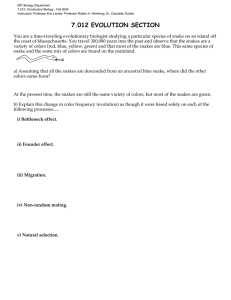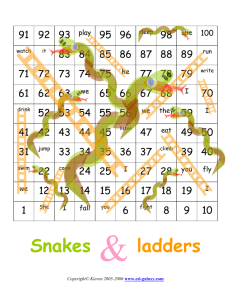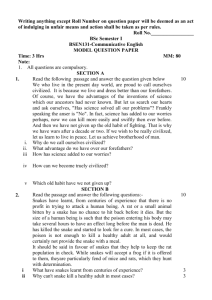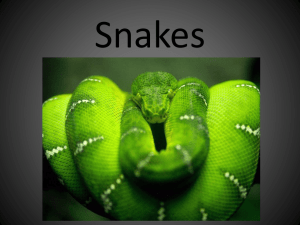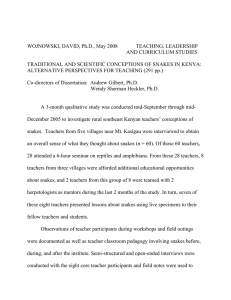Document 15099427
advertisement
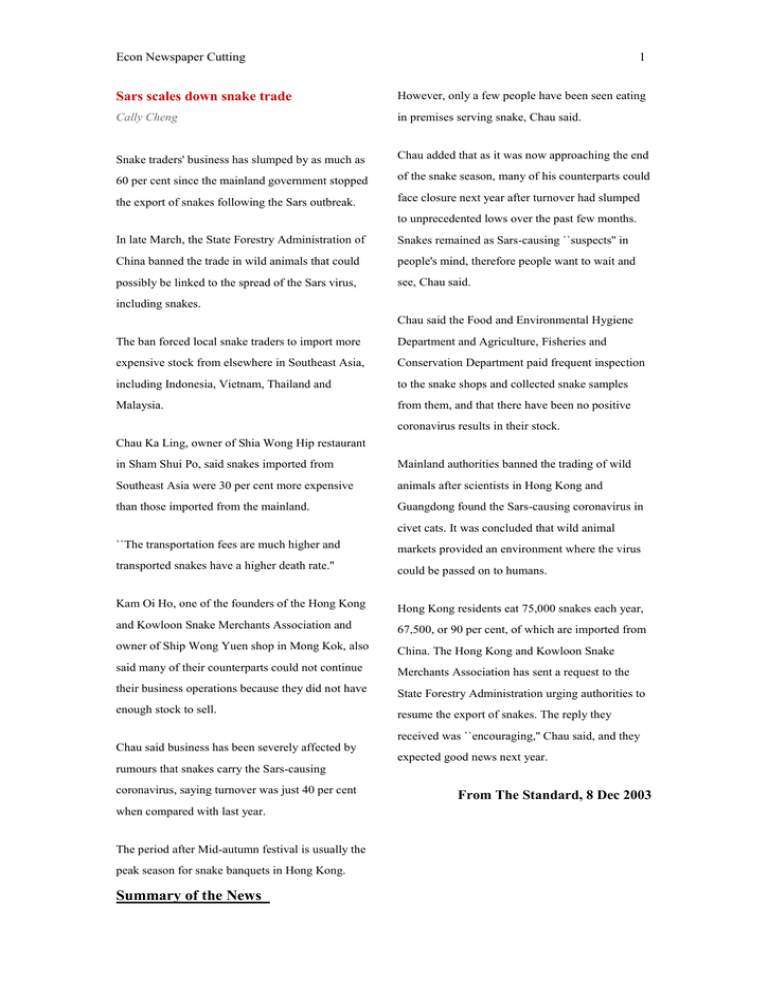
Econ Newspaper Cutting 1 Sars scales down snake trade However, only a few people have been seen eating Cally Cheng in premises serving snake, Chau said. Snake traders' business has slumped by as much as Chau added that as it was now approaching the end 60 per cent since the mainland government stopped of the snake season, many of his counterparts could the export of snakes following the Sars outbreak. face closure next year after turnover had slumped to unprecedented lows over the past few months. In late March, the State Forestry Administration of Snakes remained as Sars-causing ``suspects'' in China banned the trade in wild animals that could people's mind, therefore people want to wait and possibly be linked to the spread of the Sars virus, see, Chau said. including snakes. Chau said the Food and Environmental Hygiene The ban forced local snake traders to import more Department and Agriculture, Fisheries and expensive stock from elsewhere in Southeast Asia, Conservation Department paid frequent inspection including Indonesia, Vietnam, Thailand and to the snake shops and collected snake samples Malaysia. from them, and that there have been no positive coronavirus results in their stock. Chau Ka Ling, owner of Shia Wong Hip restaurant in Sham Shui Po, said snakes imported from Mainland authorities banned the trading of wild Southeast Asia were 30 per cent more expensive animals after scientists in Hong Kong and than those imported from the mainland. Guangdong found the Sars-causing coronavirus in civet cats. It was concluded that wild animal ``The transportation fees are much higher and markets provided an environment where the virus transported snakes have a higher death rate.'' could be passed on to humans. Kam Oi Ho, one of the founders of the Hong Kong Hong Kong residents eat 75,000 snakes each year, and Kowloon Snake Merchants Association and 67,500, or 90 per cent, of which are imported from owner of Ship Wong Yuen shop in Mong Kok, also China. The Hong Kong and Kowloon Snake said many of their counterparts could not continue Merchants Association has sent a request to the their business operations because they did not have State Forestry Administration urging authorities to enough stock to sell. resume the export of snakes. The reply they received was ``encouraging,'' Chau said, and they Chau said business has been severely affected by expected good news next year. rumours that snakes carry the Sars-causing coronavirus, saying turnover was just 40 per cent when compared with last year. The period after Mid-autumn festival is usually the peak season for snake banquets in Hong Kong. Summary of the News From The Standard, 8 Dec 2003 Econ Newspaper Cutting 2 After the outbreak of SARS, the mainland stopped the export of snakes. This forced the snake traders to import snakes from Southeast Asia, but snakes imported from Southeast Asia were 30 per cent more expensive than those imported from the mainland. Moreover, since the people are afraid that eating snakes may get SARS, they reduce their demand for snakes. The sales of snakes decrease 40 per cent compared with last year. Therefore, the snake traders’ business is greatly affected by the fear of outbreak of SARS. Price S2 S1 P1 P2 D2 0 D1 No. of Snakes Q2 Q1 Since the mainland stopped the export of snakes, the traders need to import snakes from Southeast Asia, which are more expensive. Supply of snakes decreases and the supply curve shifts left. People are afraid of getting SARS, so they eat fewer snakes. Demand decreases and the demand curve shifts left. Decrease in demand is greater than decrease in supply. Therefore, the price of snakes will decrease and the quantity transacted also decreases. Ann Lou (20) Jessica Man (21) F.4A
